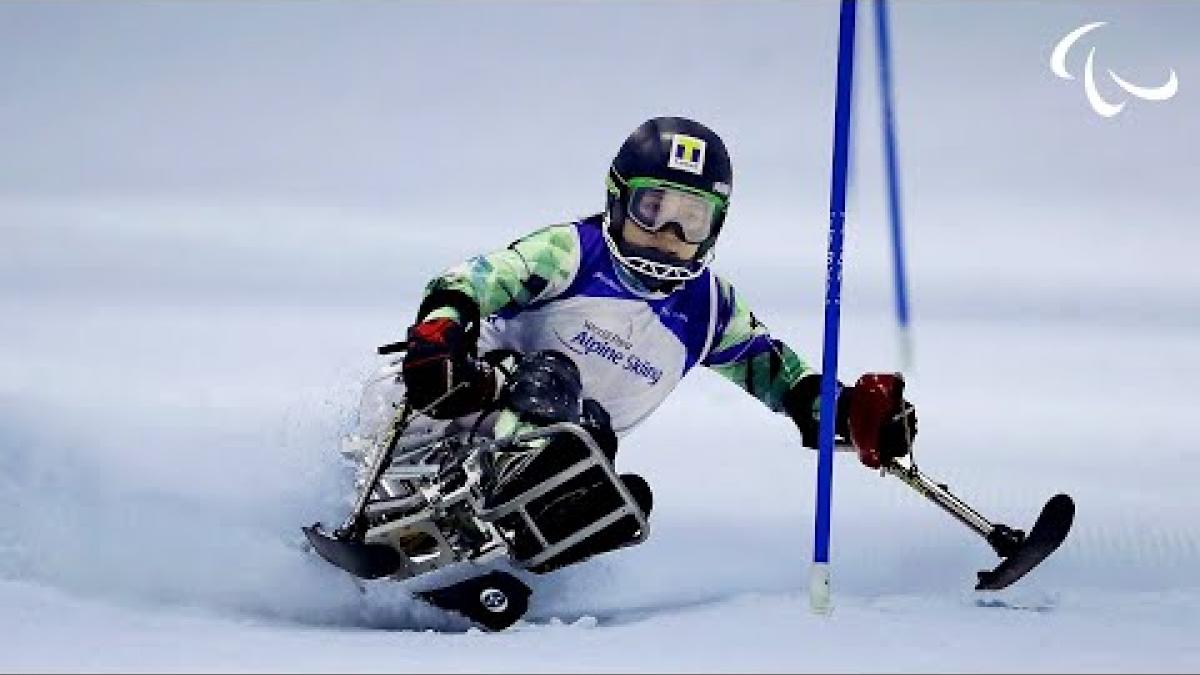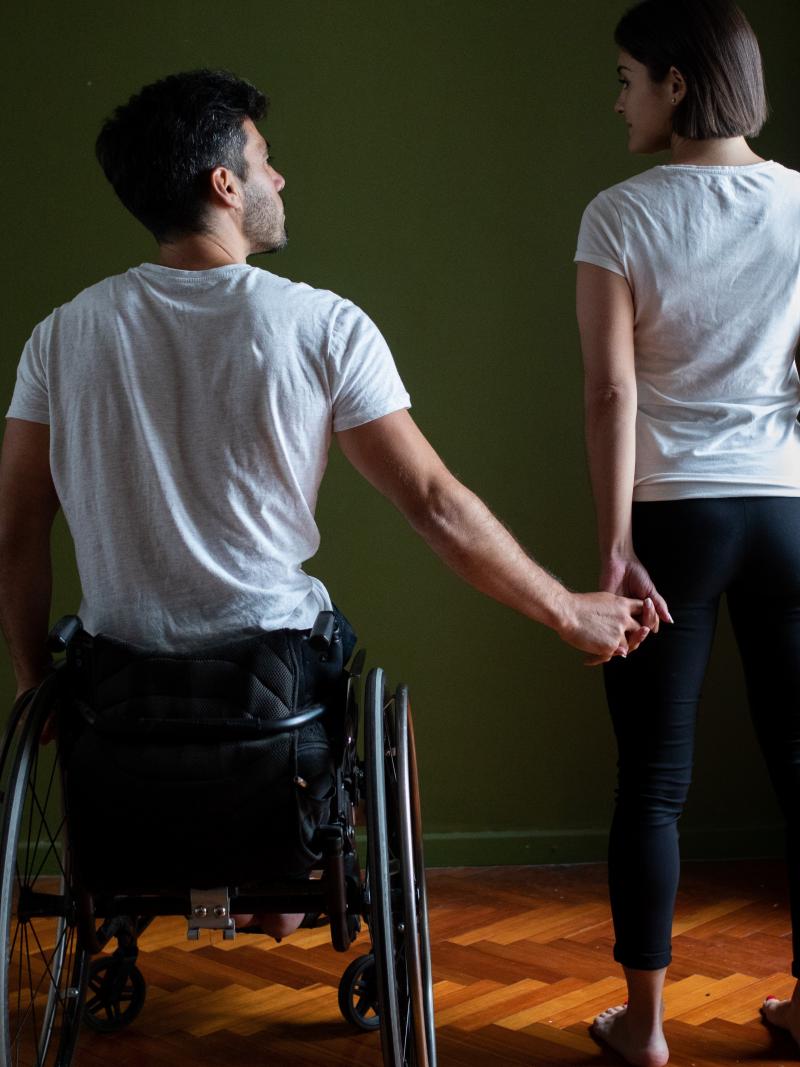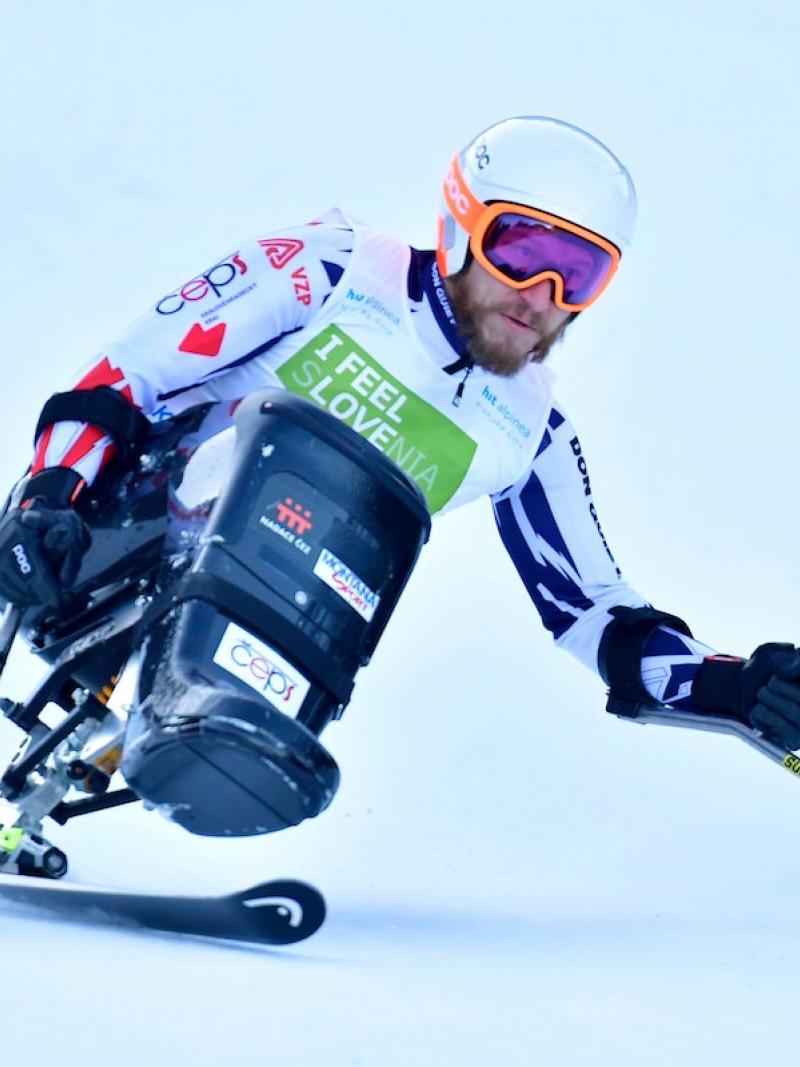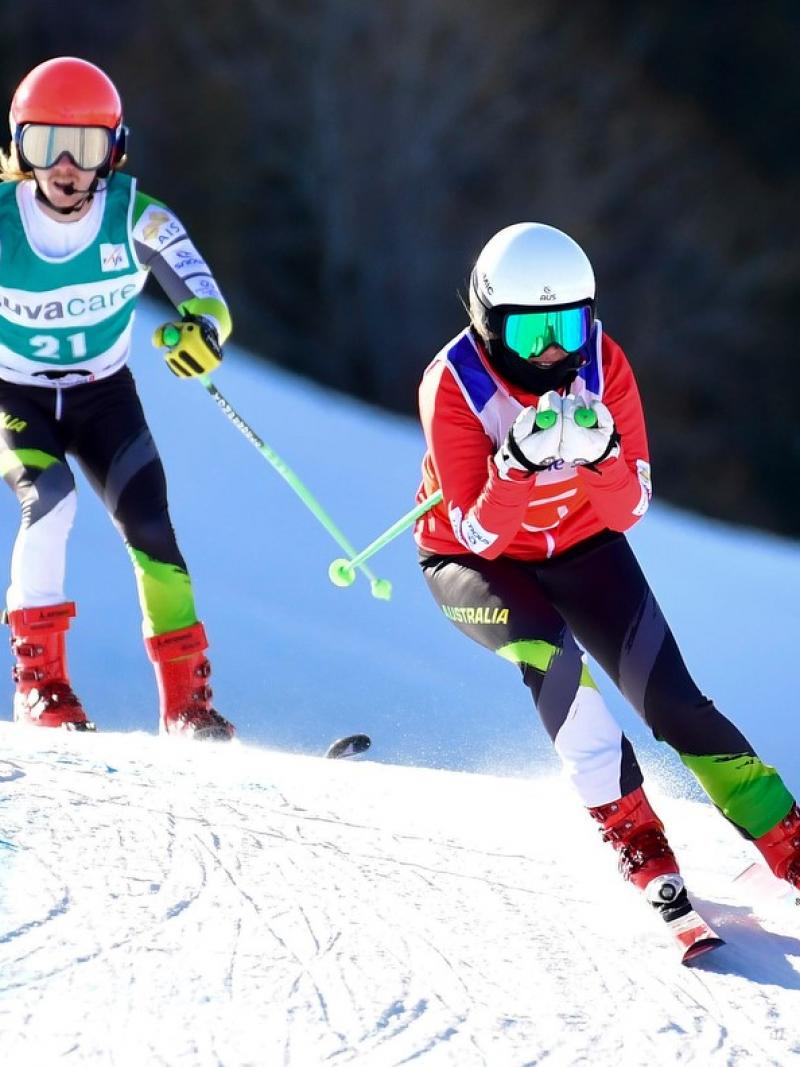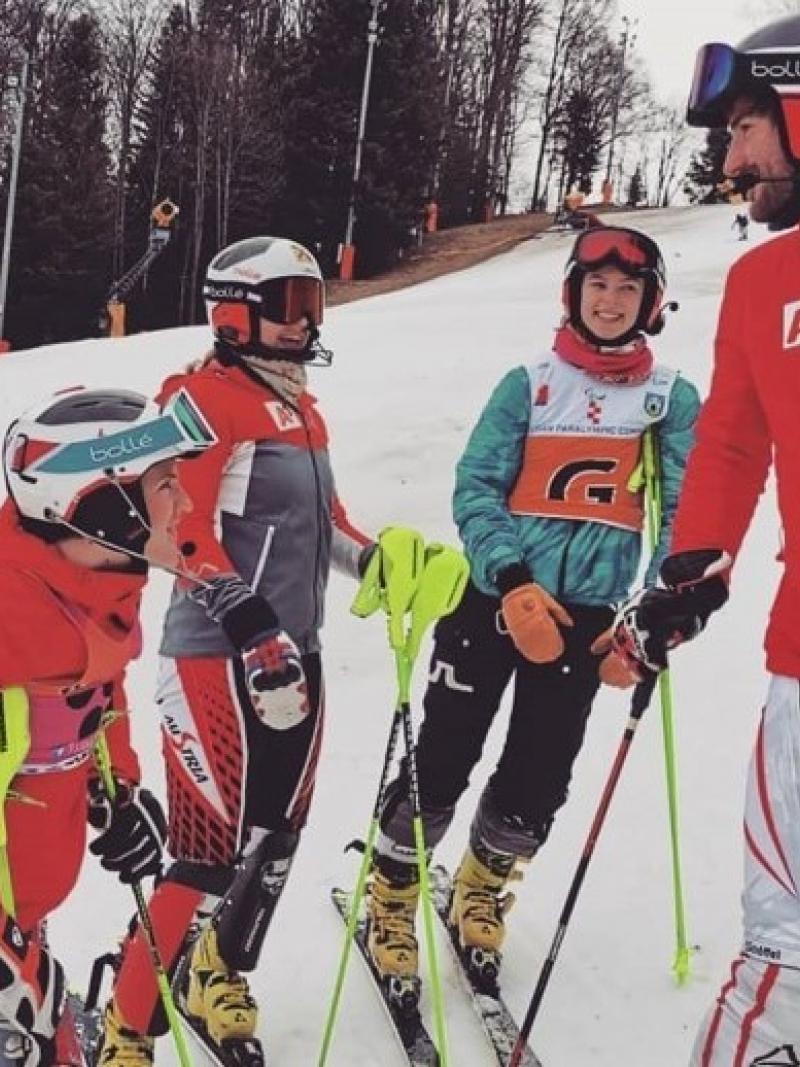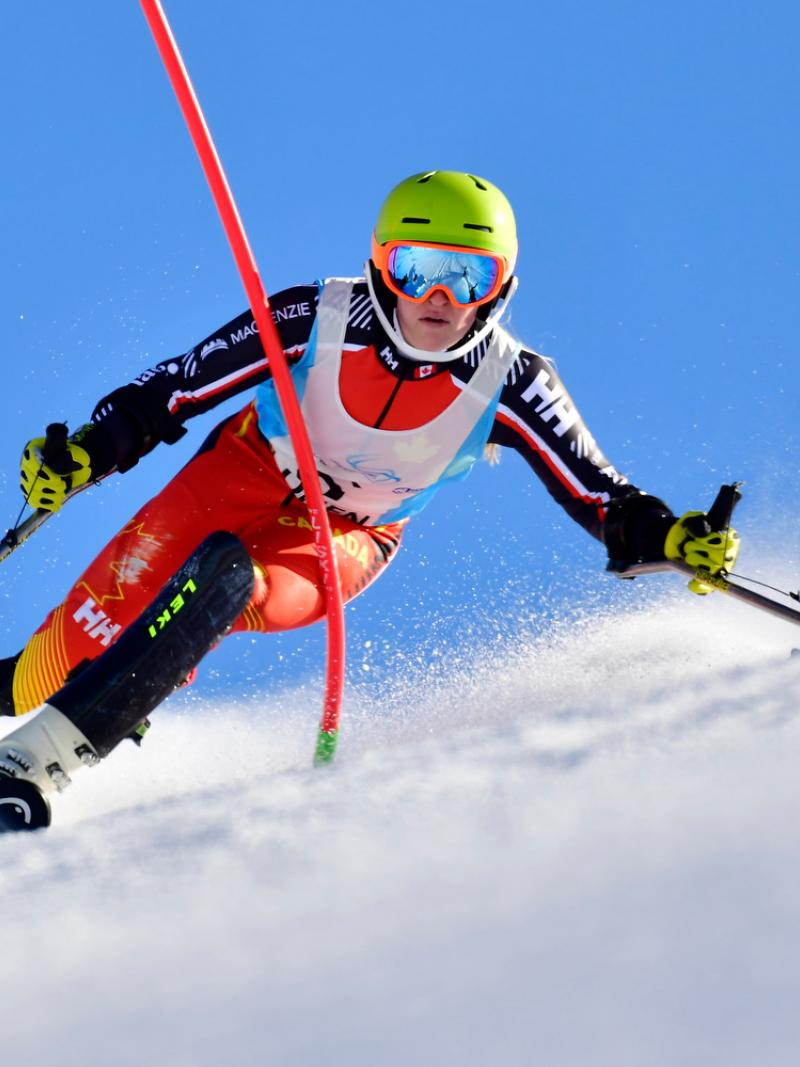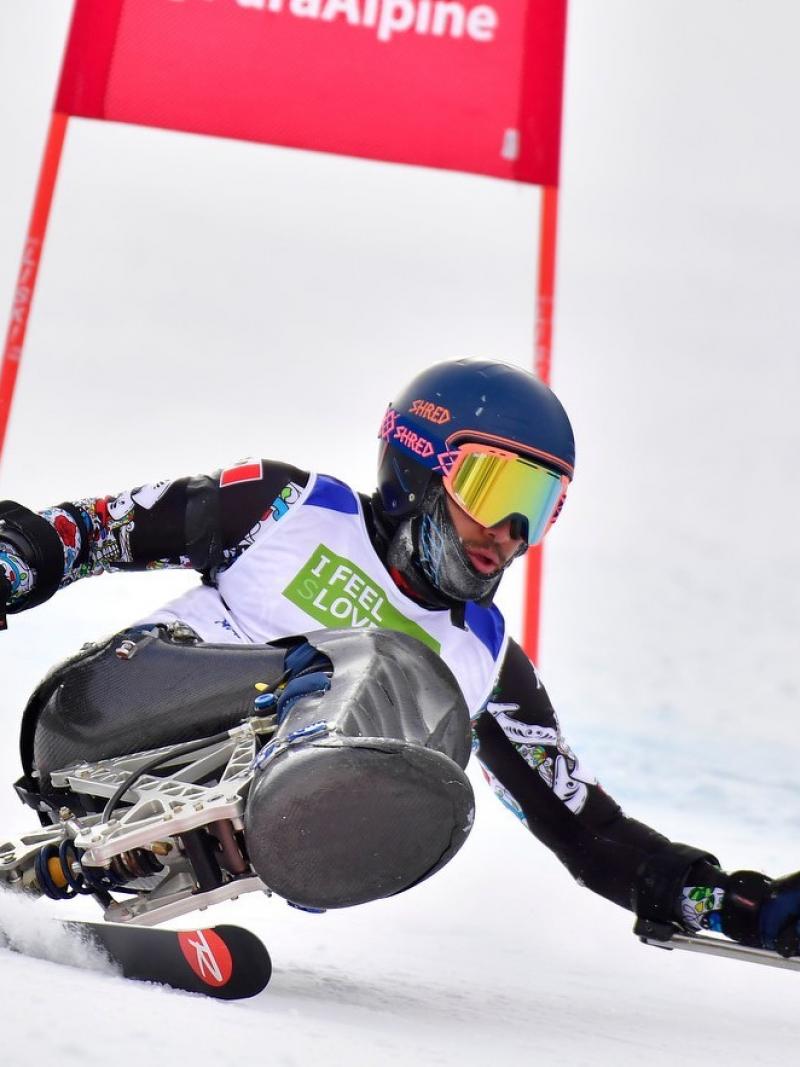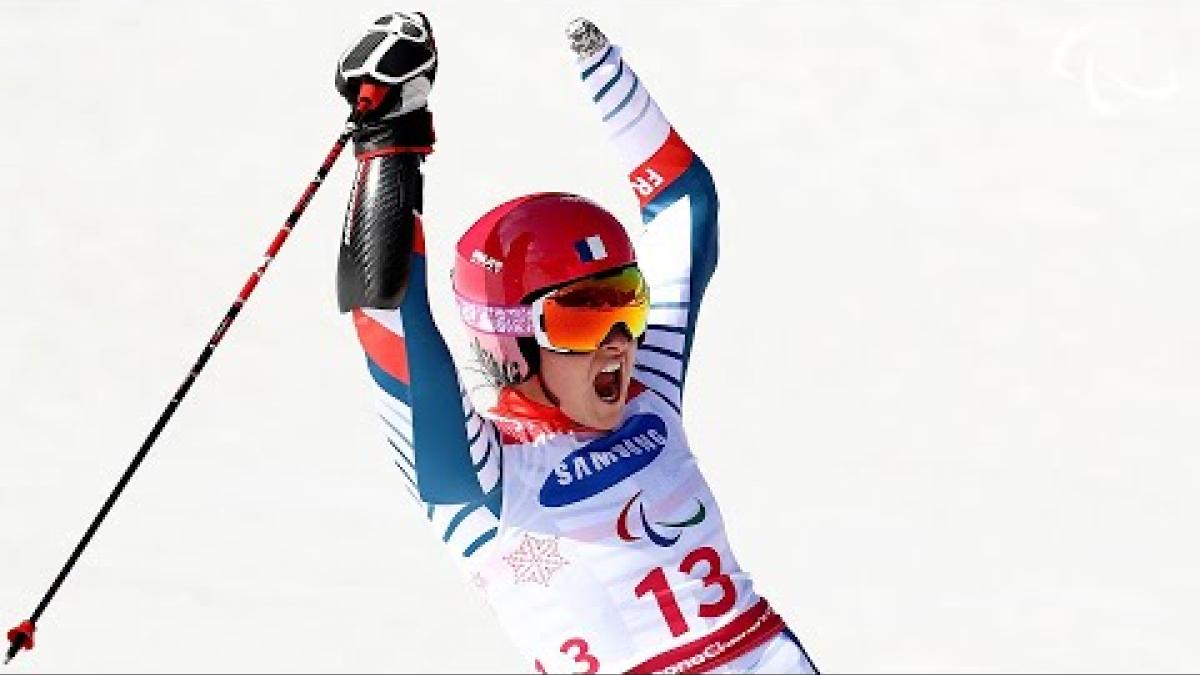Ursula Pueyo channels skiing will power into tough post-sports career
After 15 years in Para alpine skiing, Spanish Paralympian is helping troubled teens get back on track 11 Nov 2020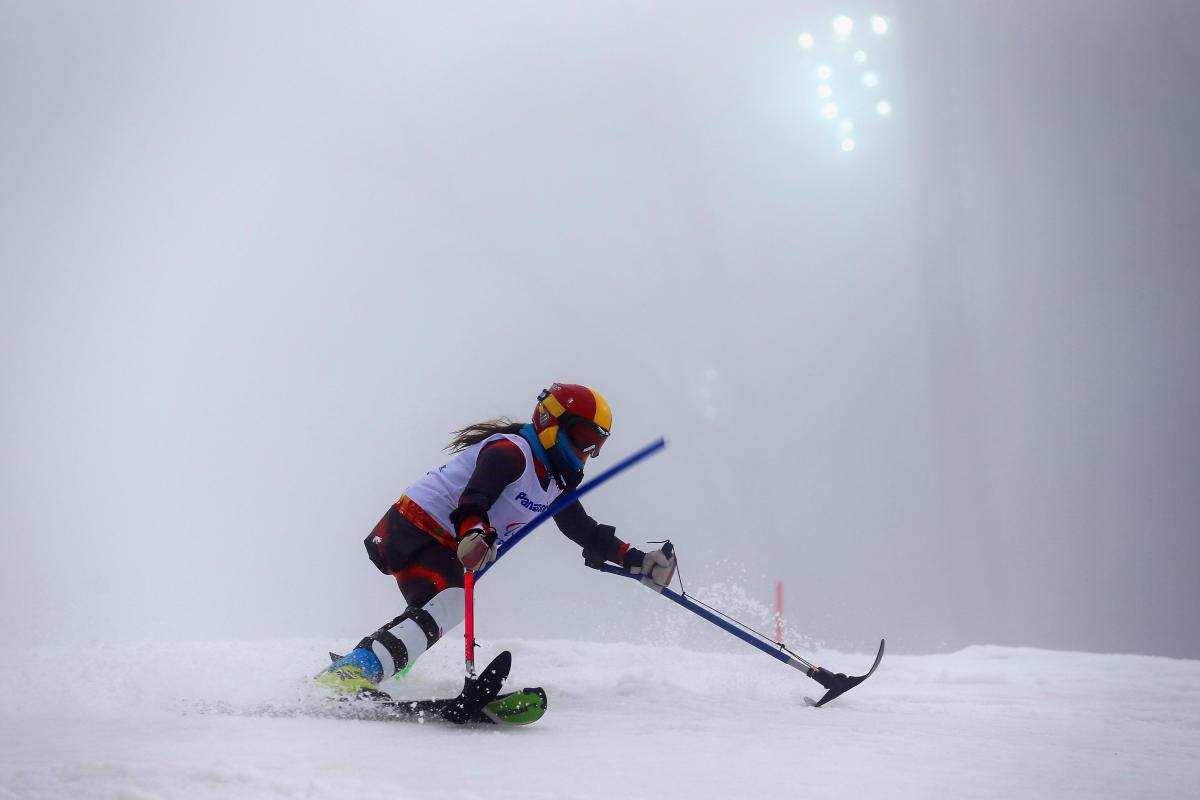
When beach girl Ursula Pueyo Marimon made an impulsive decision to devote her life to alpine skiing, nothing - not the cold, financial challenges, or even fresh stitches in her stomach - could deter her.
But now, after 15 years in Para alpine skiing, the Spanish athlete has said goodbye to her beloved sport and is embracing life on shore as a worker in a juvenile justice centre.
“My mind told me to stop and my heart told me to continue. They were always fighting,” Pueyo said of the tough decision to retire in 2019. “I miss skiing. It is my great passion, but Mallorca is my life, and so is my family. With that, I have everything.”
Sand to snow
Having grown up on the sunny island of Mallorca, the beach was a familiar habitat for Pueyo. Skiing, on the other hand, was completely out of her comfort zone.
“Never!” she said of trying skiing in her youth. “Never, never, never. I am a typical Mallorcan person and my life is the sea. I love sailing, I love fishing. I love being on the beach.”
When Pueyo finally tried skiing, it was on a whim.
Her school friends asked her to join them for their annual, one-week trip to the mountains in Andalucia. This was three years after a motorbike accident forced Pueyo to have her right leg amputated above the knee. As she giddily maneuvered the ski course on one leg, it was clear that the sport was love at first sight.
“I loved it,” she said. “When I arrived in my home in Mallorca, I told my parents, ‘I need to ski. I won’t live in Mallorca any more. I want to live in Sierra Nevada and practise ski’.”
After persuading her initially hesitant parents, Pueyo - then aged 17 and in her first year at university - took off for Sierra Nevada where she stayed for three years, learning to ski and later working as a ski instructor.
She was eventually recruited by the Spanish team and, for the next eight years, trained and competed with the other national athletes, including at the Vancouver 2010 and Sochi 2014 Paralympic Winter Games.
Obstacle course
Despite her quick jump into the sport, Pueyo’s later journey in Para alpine skiing has been a rocky one.
She left the national team soon after Sochi 2014, and has had to pay her own way to train and compete ever since. The independent status also meant that she could not compete at the Paralympic Games in PyeongChang in 2018.
On top of this, Pueyo has had to deal with health setbacks. She underwent emergency stomach surgery shortly before her career’s last World Cup race, and spent more than a week in hospital.
But less than 20 days after getting eight stitches in her stomach, and with no training, the fiesty skier was back on the slopes to compete at the home race in La Molina, Spain.
“The doctors know me so well and always tell me, ‘You are crazy. You never relax. You need to relax’, but I wanted to go to La Molina,” Pueyo said. “And it was perfect. In the snow I am happy and maybe for this reason I didn’t have pain.”
However, as she crossed the finish line - with her family watching from the sidelines - Pueyo made the decision that the La Molina races would be the finale to her ‘crazy’ skiing lifestyle.
Life on shore
One way Pueyo has paid for skiing since leaving the national team is through her work in a socio-educational centre for juvenile offenders.
She has turned her full attention to this work since retiring from the sport. Her pupils are teenage delinquents, aged 14 to 18, who are taken from difficult home environments and placed in a boarding facility.
With a graduate degree in juvenile justice already in hand, Pueyo is currently pursuing another degree in pedagogy and psychology.
“I love the challenge,” the retired Para alpine skier said of her job. “For me it’s easier to work with people who have a disability or something unusual about them.
“I try to make it so that the justice system does not give them sentences. When a child does not behave well, they bring him to me, and depending on his behaviour, I decide one thing or another.”
This work is so psychologically draining that Pueyo used to look forward to skiing competitions as a relaxing break - a tame challenge compared to what she faces working with troubled teens.
But now those competitions are in the past.
“I did all that I can and I am proud of myself,” Pueyo said, looking back on her sports career.
“I have a lot of hobbies, above all, spending time with my family and friends, enjoying Mallorca, swimming, walking, sailing, but I miss skiing. I need it a lot!”





